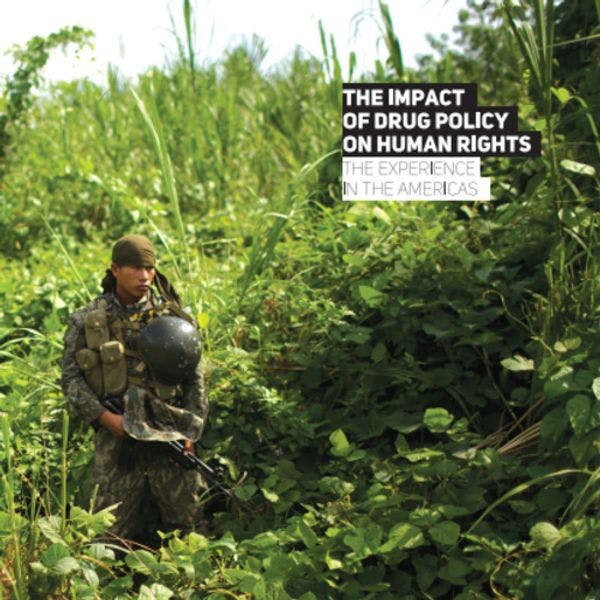L'impact des politiques des drogues sur les droits humains: l'expérience du continent américain
CELS critique l'approche prohibitionniste qui a conduit à la militarisation, la violence, la pénalisation de l'usage de drogues, l'incarcération en masse et l'éradication forcée des cultures. Pour en savoir plus, en anglais, veuillez lire les informations ci-dessous.
Abonnez-vous à l'Alerte mensuelle de l'IDPC pour recevoir des informations relatives à la politique des drogues.
This CELS report highlights the different strategies used in countries across the Americas to tackle the drugs problem in the region. It discusses the prohibitionist approach which has led to militarisation, violence, criminalisation of drug use and users, mass incarceration and forced crop eradication campaigns.
The so-called “War on Drugs” deployed in the last 50 years has had an enormous impact on the functioning of security, justice and prison systems in Latin America. Despite the high levels of violence that this battle has caused in some areas and its grave consequences, for many years it was not analyzed from a human rights perspective in local or international arenas. This scenario has begun to change. In March 2014, at the request of 17 organizations from 11 countries in the Americas, the Inter-American Commission on Human Rights (IACHR) held a regional thematic hearing on this topic, the first in the history of its 150 sessions. This publication expands on the assessment presented by those organizations.
The prohibitionist paradigm has increased exponentially the militarization and violence associated with drug trafficking. By creating an enormous illegal market controlled by complex and increasingly powerful criminal groups, violent conflicts have intensified throughout the region, especially in impoverished areas where there has been a further deterioration of inhabitants’ living conditions and increased stigmatization.
These repressive policies tend to violate the human rights of thousands of people, above all those who face judicial proceedings and are sent to prison, where overcrowding and inhumane detention conditions are often the norm. Numerous studies have shown that these policies tend to disproportionately affect particularly vulnerable groups, and in that way, they reinforce and replicate discrimination and social exclusion.
Keep up-to-date with drug policy developments by subscribing to the IDPC Monthly Alert.
Téléchargements
Sujets
- Crime transnational et organisé
- Marchés des drogues réglementés
- Prisons et incarcération
- Droits humains
- Violence liée aux drogues
- Droits humains et justice sociale
- Réforme des lois sur les drogues
- Décriminalisation
- Culture de plantes considérées illégales
- Justice pénale
- Moyens de subsistence alternatifs
- Santé et réduction des risques
- Décriminalisation, réglementation et réforme
